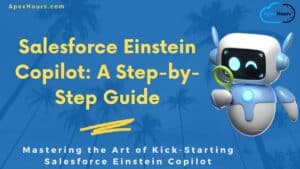Want to learn about Integrate GitHub with Jenkins (CI/CD). In this session we will talk about how we can setup the CI/CD pipeline using GitHub and Jenkins.
Integrate GitHub with Jenkins (CI/CD)
In this session, you will learn how deployment happened before Jenkins was set up in this project, What Jenkins is, and what continuous integration is. We also covered the Features of Jenkins.
What Is Jenkins?
Jenkins is an open-source, extensible automation server for implementing continuous integration and continuous delivery. You can integrate Salesforce DX with the Jenkins framework to automate Salesforce deployment.
Integrate GitHub with Jenkins Video
To integrate GitHub with Jenkins for continuous integration and continuous deployment (CI/CD), you can follow these steps
Continuous Integration using SalesforeDX and Jenkins.
Check our post Salesforce deployment using Jenkins to learn more.
Please note that we have a limit of 200 attendees who can join the online sessions. However, the recording will be posted on our YouTube channel. Make sure to subscribe to our YouTube channel to get a notification for video uploads.
Summary
I hope this session will helped you to understand the Salesforce DevOps. Let us know how you are using Integrate GitHub with Jenkins in your project. Once the configuration is completed, Jenkins will automatically build and test your code whenever there is a new commit pushed to the GitHub repository.






